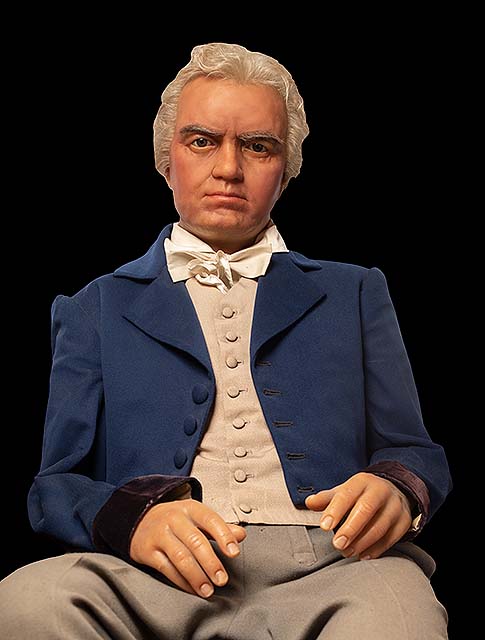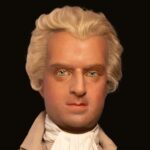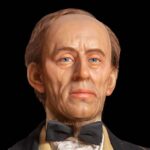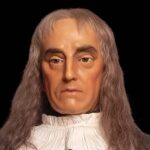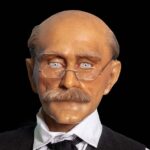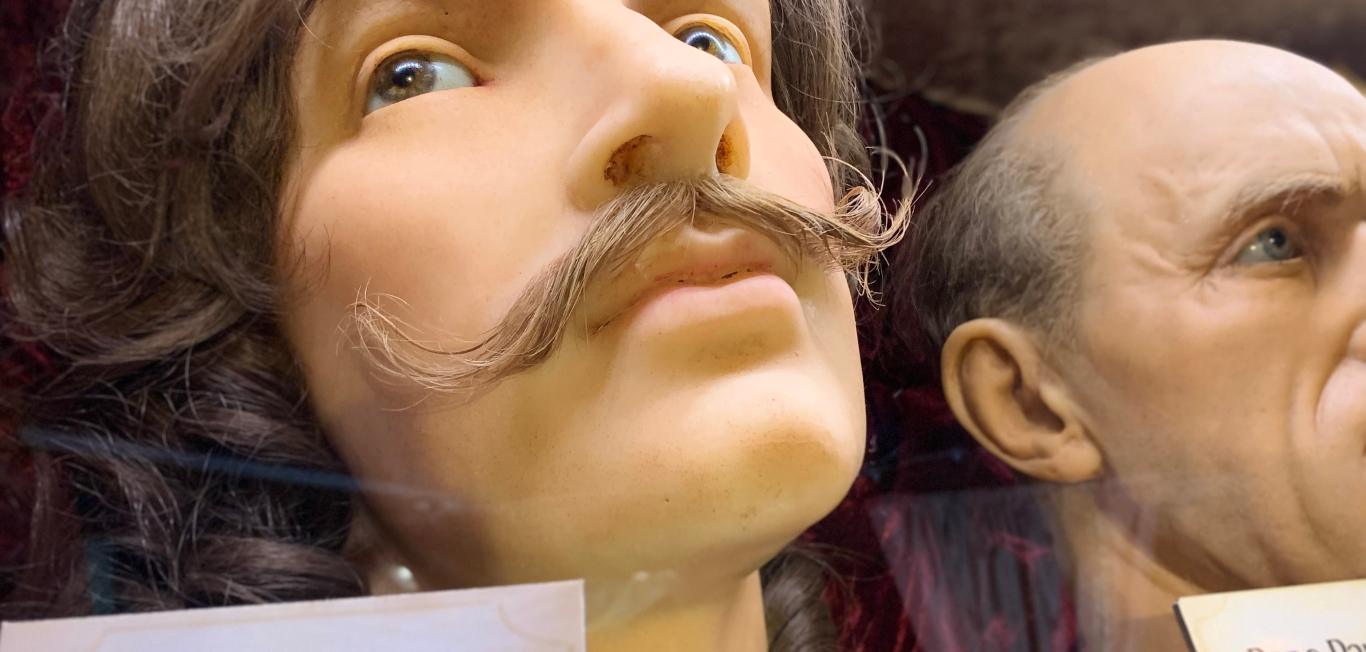Who Was Ludwig Beethoven?
You have certainly heard one of his compositions or at least the name Ludwig van Beethoven. But who is he truly, and why is he so well-known throughout history?
Ludwig van Beethoven was a German composer regarded as one of the finest and most important figures of classical Western history. He played a key role in the movement between the classical and Romantic eras of Western music. Compared to preceding generations, Beethoven’s work made clear the capability of music to communicate an understanding of life without the need for words. In some of his pieces, the strongest assertion of humanity may be heard out of all music. Despite not being a Romantic himself, Ludwig van Beethoven’s illustrative music became the source of many traits that distinguished the work of the romantics who succeeded him.
Young Beethoven
On December 17, 1770, Ludwig van Beethoven was born in Bonn. At the time, this was the capital of the Electorate of Cologne. He was the grandson of a musician. Beethoven’s father was his first music instructor. Beethoven had to study because his strict father made him. At the age of eight, after quickly realizing his piano aptitude, he performed in front of an audience for the first time. Beethoven’s father wished to showcase him as an upcoming Mozart-like child prodigy. Beethoven began working in Bonn as a court musician in 1787. Although they were undoubtedly not fulfilling relationships for Beethoven, he briefly studied with both Haydn and Mozart during this period. It turns out that Beethoven’s personal experiences significantly impacted his composition.
At the age of 12, Beethoven wrote his first work. Dressler’s Nine Variations on a March contains deft harmonies, lovely melodic phrasing and clues to his later tempestuous musical persona. Beethoven’s musical output was quite episodic due to these life experiences. Beethoven also received instruction from other professors, including Franz Rovantini, a violinist and violist, and the court organist Tobias Pfeiffer, who also taught piano.
DID YOU KNOW?
At the age of 12, Beethoven wrote his first work.
Beethoven’s Music
Beethoven’s music has been classified into (approximately) three periods since it was written during the transitional period between the classical and Romantic eras. The first period (1794-1800) is distinguished by classic 18th century style and sounds. During the second period (1801-1814) there was a rise in the usage of improvised work. Between 1814 to 1827, the third period, there were many different musical harmonies and textures. Beethoven produced the most during his second era. The “Eroica” Symphony (1805), Symphony No. 5 in C minor (1808), Symphony No. 6 in F major (1808), and Symphony No. 7 in A major (1813) were among the works he wrote at that time in his career.
Career as a Composer
In 1790, a friend of Ludwig van Beethoven first introduced him to Joseph Haydn. Around Christmastime, Haydn was heading to London and took a detour to Bonn. Ludwig van Beethoven created a number of pieces between 1790 and 1792 that demonstrated his developing musical compositional maturity. Following reports of war in France, Beethoven departed from Bonn for Vienna. He responded throughout the course of the following years to the public’s perception that he was the late Mozart’s successor. He would study the works of Mozart and other additional materials of his.
Ludwig van Beethoven prioritized studying performance above composition. He had already gained a solid reputation as an improviser in noble salons by 1793.
Many people supported Ludwig van Beethoven and provided him with housing and money. In March 1794, he appeared before the public for the first time in Vienna. He gave his first piano concerto performances in 1795. Soon after, Beethoven selected his Opus 1, a number of piano trios, to publish, which was a huge commercial and critical accomplishment. Beethoven’s Symphony No. 1 made its world premiere at Vienna’s Royal Imperial Theatre in the spring of 1800.
DID YOU KNOW?
In March 1794, Beethoven appeared before the public for the first time in Vienna.
Beethoven continued to write music as the new century went on, establishing himself as a great composer who had reached the pinnacle of his own creative development. He wrote six string quartets in 1801, followed by “Creatures of Prometheus” later that year.
Beethoven performed his Symphony No. 3, widely known as the “Eroica” Symphony, in 1804, a few days after Napoleon was named emperor.
Lack of Hearing
In his mid-20s, after he had established a reputation as a musician and composer, Beethoven started to lose his hearing. Ludwig van Beethoven produced 722 works, including nine symphonies, 35 piano sonatas and 16 string quartets, despite the onset of deafness.
Beethoven kept up his public performances as a musician, which was essential for many of the era’s composers. The way that composers spread the word about their works was through performances. Ludwig van Beethoven hid his deafness for a long time because he thought it would harm his profession. However, his state wasn’t overlooked.
Beethoven’s ability to continue composing while losing his hearing has often been questioned; although, it was probably not too challenging. Music has rules like any other language. He could sit at his workstation and create music without hearing it since he was aware of the rules dictating how music is created.
However, Beethoven’s style evolved as he withdrew from the public eye. His formerly lively piano sonatas began to sound more melancholy. His well-known Symphony No. 6 also depicts his existence as a newly deaf person. The musical composition often referred to as the “Pastoral” Symphony, captures the tranquility of the countryside, where Beethoven sought refuge after losing his hearing. This was a very significant symphony in the context of his deafness, representing the significance of a person staying in the country to maintain his sanity.
Beethoven lost his public life at the age of 45 when his hearing was completely lost. He stopped performing and making remarks in public, only letting a few acquaintances come visit him, and started keeping written dialogue in notebooks. Over time, as a result of his deafness, he developed an introverted demeanor.
DID YOU KNOW?
Beethoven lost his public life at the age of 45 when his hearing was completely lost.
Interesting Facts About Ludwig Van Beethoven
At the age of 11, Ludwig van Beethoven dropped out of school to help support his family.
Ludwig van Beethoven’s deafness was most likely brought on by typhus or smallpox as a child. He began to experience continual buzzing in his ears at the age of 27.
The composer Haydn served as a teacher for Ludwig van Beethoven. Early in his 20s, Beethoven relocated to Vienna and began taking lessons from the symphony’s founder, Joseph Haydn. Beethoven frequently became irritated with his teacher, and the two eventually developed an estranged relationship.
Piano composing was introduced by Ludwig van Beethoven. Beethoven chose to concentrate his energies on the piano, an instrument for which no full works had yet been produced. Composers before Beethoven had written using the harpsichord.
Sonatas of Ludwig van Beethoven were composed for his romantic partners. “Moonlight” Sonata became popular as soon as it was finished in 1801. Beethoven gave it to his student and longtime love, Countess Giulietta Guicciardi, the next year.
Napoleon was honored in Ludwig van Beethoven’s Symphony No. 3 in E lat major. The lyrics for Ludwig van Beethoven’s Symphony No. 9 were written by Friedrich Schiller.
Late in Life
Missa Solemnis, one of Ludwig van Beethoven’s most famous compositions, was written toward the end of his life. This was first performed in 1824 and is regarded as his finest work. The ninth and last symphony by Beethoven was finished in 1824. Beethoven passed away on March 26, 1827, at the age of 56. Post-hepatitic cirrhosis of the liver was the cause of his death.
FAQs
What is unique about Beethoven?
Beethoven was a special composer since he had a talent for incorporating emotions into his works. He created new musical forms. Before Ludwig van Beethoven, there was no other composer who was known to have written and composed in this manner. He expanded the parameters of the symphony, the sonata, the concerto and the quartet, dissolving many conventions of classical music in the process.
What were Beethoven’s last words?
Beethoven’s final known words were, “Pity, pity — too late!” after he was informed that his publisher had sent him a gift of 12 bottles of wine.
What is Beethoven best known for?
The greatest composer to have ever lived is often recognized as Ludwig van Beethoven.
What is Beethoven’s famous song?
“Ode to Joy” – Symphony No. 9.
